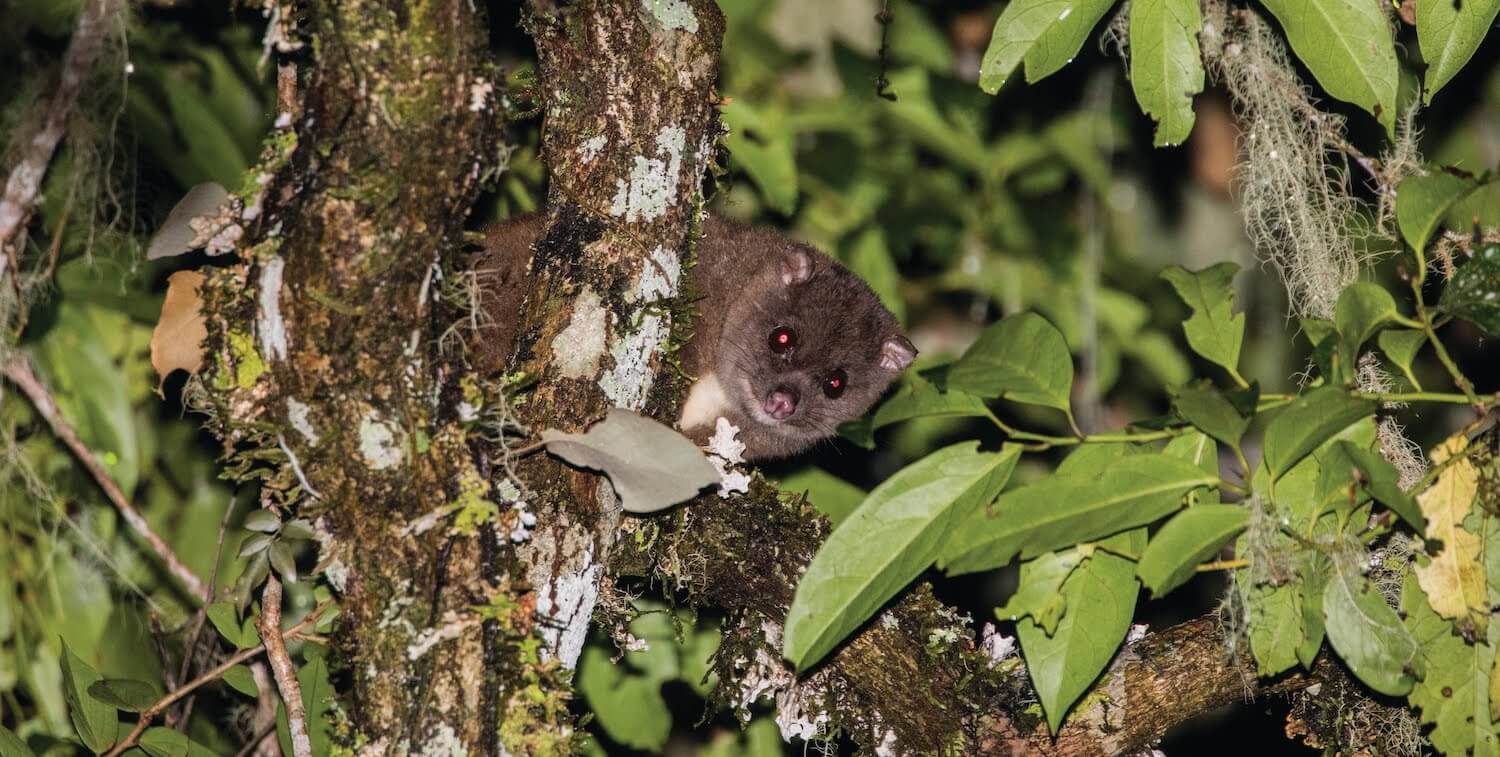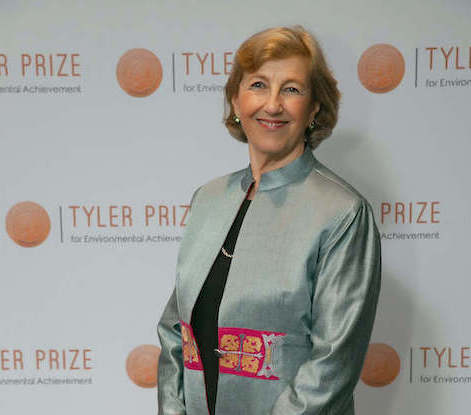
This Global Biodiversity Panel Is a Game Changer
Why the work of IPBES matters for you – A Q-and-A with Julia Marton-Lefèvre
16 August 2020
In May 2019, a report was issued. That may not sound earthshattering, but the release of the Global Assessment Report on Biodiversity and Ecosystem Services proved a turning point in the effort to halt the biodiversity crisis.
Put together and vetted by a team of experts from around the globe, using data from many sectors, the report offered some shocking figures: 1 million species of plants and animals at risk of extinction, many within decades; up to US$577 billion in annual global crops threatened by pollinator loss; and 100-300 million people at increased risk of floods and hurricanes because of loss of coastal habitats and protection.
Such stark numbers were reported in the news media and pored over by scientists and governments, bringing the biodiversity crisis the higher profile conservationists have long sought. And it raised awareness of biodiversity loss as a threat to humanity on par with climate change.
This was made possible by the Intergovernmental Science-Policy Platform on Biodiversity and Ecosystem Services (IPBES), an entity that has been working since 2012 to deliver biodiversity and ecosystem science that governments, decision-makers and conservation donors can act on.
CEPF Donor Council Chairperson Julia Marton-Lefèvre has been involved with IPBES from the start, and serves on its Bureau, a small body elected by participating governments to guide and oversee key administrative functions of IPBES. An experienced conservation leader, Marton-Lefèvre views her service with IPBES as some of the most important work of her life.
Marton-Lefèvre spoke to CEPF about the panel’s continuing work and significance.
Q: Why should an average person on the street care about what IPBES is doing?

A: The person on the street today understands that there is a problem with nature. Maybe they don't know what biodiversity means, but they certainly know that we're losing nature. They’ve seen Australia and the Amazon on fire, costing the loss of human lives and species while fueling climate change. They’ve seen many lives lost and the global economy nearly grind to a halt over a pandemic linked to habitat destruction. And so the person on the street hopefully is interested in ensuring that her government is making the right decisions. And most governments are quite seriously influenced by what the science says.
Most governments need some kind of support vis-á-vis their electors to say “This is why we're going to protect so much land where you can't build shopping malls, or the real estate moguls know you can't build 100 little houses—this is the reason why we cannot occupy this land. We need it to breathe, for us to capture carbon that is linked to climate change, and also to make sure that we have water and clean air.”
Most governments don't have their own national scientific advisors—that’s where IPBES comes in. And for those countries that have such advisors, it's very good to join a global consensus on the science and evidence for better-informed biodiversity conservation. Countries will have to make their own decisions, but these are stronger when based on the global scientific analysis of what the situation is and what can be done.
Q: Why is the work of IPBES important for CEPF and its grantees?
A: The governments that you are involved with, who host the different programs on the ground, the more they understand what their responsibility is, based on good science, the better it is for our work.
For example, there was a very good assessment in the first five years of IPBES on pollinators. That assessment resulted in much more protection for bees and awareness. Now we're scoping an assessment on the nexus between biodiversity and food, water and health. And one on the different ways of valuing nature. These topics were requested by member governments and some of the stakeholder organizations engaging with IPBES.
Each country has a national focal point and there are 137 countries that are members of IPBES. I'm sure that includes all the countries where CEPF works.
I think the CEPF grantees should at least become familiar with the summary for policymakers, which was adopted in May 2019, because that is what their governments have accepted, so they can use that as an argument if they feel that they're not being supported for some of the things they want to do to protect nature.
Q: How does IPBES work?
A: IPBES aims to synthesize the biodiversity and ecosystem science, not necessarily do the research but to be aware of existing knowledge through looking at scientific publications from all parts of the world, not just the North or not just one country, but all parts of the world. And they also look at other forms of knowledge, including indigenous and local knowledge. This synthesis of the existing science is done by authors who are selected based on a very transparent and international search. The nominating process involves an open call addressed to governments and stakeholder organizations of IPBES.
And so, really, the legitimacy of IPBES is based on this process. It does take time, but if things work well, governments will listen to the advice of the science because it comes from all over the world.
The owners of the platform are the 137 government members. They elect members of the Bureau, which is really in charge of making sure that things work on the administrative side. It consists of 10 people, two per U.N. region, and I and a US colleague (Doug Beard) represent the “Western European and Others Group (WEOG).”
The Bureau oversees the administrative work of the secretariat—the finance; makes sure that all the rules set by governments are followed; works on communication; and then oversees the organization of the agenda of the Plenary sessions, which is where the governments meet, and also advises the Plenary. The Bureau also chairs the Plenary sessions.
There is also the secretariat, which looks after the day-to-day operations and is located in Bonn, Germany. While IPBES is not a U.N. body, its secretariat is administered by the U.N. Environment Program.
Then there's the Multidisciplinary Expert Panel. There are 25 elected members—five per region—and they advise on and oversee the scientific and technical matters. The Bureau and the MEP often work closely together on both the management and the science issues.
The Global Assessment, which was approved in May 2019, received 15,000 individual comments and each comment was published with the responses. Anybody can comment as long as they register on the IPBES website, so we know who they are.
Q: Why did you decide to join the IPBES Bureau?
A: I joined because I think I can help, and I think it's important. I also believe that IPBES can play an important role in helping governments move fast, because the issues are really serious.
Q: What is the IPBES Bureau currently working on?
A: One thing that's very good that's happening is that at the plenary in Paris in May 2019, the member governments called for more collaboration with the Intergovernmental Panel on Climate Change (IPCC).
We planned to have a workshop between IPCC and IPBES in May 2020, but it had to be postponed due to the pandemic. It will be rescheduled, though, and at that workshop, we will look to see what the commonalities are and underline the fact that mitigation plans for climate are not necessarily always good solutions for biodiversity. For example, setting aside land for biofuels is great maybe for climate, but can negatively affect food security and biodiversity. So, we need to look at challenges together and then the ideas that come out of this workshop will help to inform the decisions that emerge from the conferences of parties of the Convention on Biological Diversity (CBD) and the United Nations Framework Convention on Climate Change (UNFCC). These events also were postponed due to the pandemic, but the coordination between these agendas will be very important going forward.
Considering the extraordinary situation caused by the novel Corona virus, the Bureau and the MEP also agreed to organize a virtual IPBES workshop on the links between biodiversity and pandemics. A call for experts was sent to governments and organizations at the end of April, and the workshop took place later in July. The workshop reviewed evidence regarding the origin of infectious diseases transmitted from wild animals, as well as the relationship between pandemics and biodiversity. In particular, the workshop examined the drivers of pandemics and options for action related to biodiversity and ecosystem services in the context of the current crisis and the prevention of future outbreaks. The outcome of the workshop will be a report, expected in September, that will support the work on the interlinkages between biodiversity and health that are being addressed in the IPBES nexus assessment.
Q: We are at a very critical moment for the planet and its health, and urgent action is needed. Are you optimistic about the impact that can be made by an entity like IPBES and its partners?
A: It's the first attempt to look at these issues through a global group of experts, drawn from all countries, under the authority of all these governments. Thus, IPBES experts are truly a global group, feeding evidence directly into policy-making. And, by the way, there is money in the IPBES budget for these authors to come together, to be paid their per diem and their travel so it's not that only the rich countries that participate. The way of working in IPBES is truly equitable and transparent.
Julia Marton-Lefèvre is the former director general of IUCN. In addition to her service on the IPBES Bureau and as chairperson of the CEPF Donor Council, she chairs the Executive Committee of the Tyler Prize for Environmental Achievement and the Strategic Advisory Council to the Institute for Sustainable Development and International Relations (IDDRI).